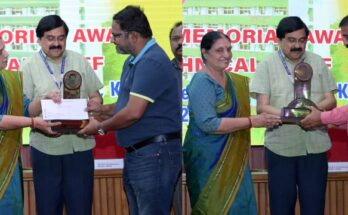The days to imagine farmers as diminutive, rural people living in poverty are probably no longer universally valid. Agriculture, as per the Economic Survey 2020-2021, constitutes 19.9 per cent of the gross domestic product (GDP), up from the 17.8 per cent in 2019-20. This makes agriculture the only bright spot in the Indian economy that is reeling under the effect of COVID-19 pandemic. This brings good news, not only for the more than 150 million farmers of India but to industries that are dependent on good harvest for their survival. It points at an opportune moment to fan the ambition of owning a business and realise the entrepreneurial dreams. One may ask how? Here are a few numbers that will explain the findings of the latest Economic Survey: India has all 15 major climates of the world and is home to as many as 20 agro-climatic regions. It is home to nearly 46 out of 60 soil types and the sunshine hours are suited for cultivation of crops round the year. India is the second largest producer of rice and wheat and tops in pulses. It is also one of the largest producers of sugarcane, cotton, peanuts, jute, tea, and spices.
Agriculture will help learn the ropes
It is always good to start from the basics – having a sound understanding of various aspects of agriculture – right from soil science and agricultural chemistry to seed technology – there is a wide variety of options to choose from. One can opt for shorter-term certificate courses to increase their knowledge gradually or opt for an undergraduate-level diploma or degree in agriculture or agricultural engineering. For more advanced understanding of the sector, a post graduate diploma or an MSc or MTech in agriculture will help.
Those who wish to foster their research and innovation streak should obtain a doctorate in agriculture. All these stages will, however, require the basics to be rooted in science at +2 level of school where students may have opted for either physics, chemistry, and biology (PCB) or physics, chemistry, and mathematics (PCM) as their main subjects or physics, chemistry, mathematics, and biology (PCMB) as the combination of subjects studied. Having said that, it does not mean students from humanities or commerce background are not suitable to become agrientrepreneurs. While commerce graduates can play a vital role in the management of an agri-based company, humanities students can channelise their soft skills and understanding of the social nuances to manage their agribusiness. In addition to their existing skills, they can always upskill themselves as per their interest leveraging the online platforms that offer certified modules on a host of topics.
Study agriculture for the competitive edge
In recent times, with the emergence of novel concepts such as ‘precision agriculture’, ‘farm to fork’ and ‘farming as a service’, technology seems to be playing a decisive role in making the fortunes of agriculture better. As per the data released by TechSci Research, the agriculture market of India was valued at more than USD 85 million in 2018, and it is expected to grow at a CAGR of more 10 per cent. Many of these entrepreneurs have featured in the prestigious lists such as Forbes 30 Under 30. However, studying agriculture or a niche domain within it will help the entrepreneur achieve a competitive edge faster – being a part of the agri value chain can bring immense benefit to the farmers, enabling them better access to quality seeds, diverse irrigation systems, fertilisers, farm tools and equipment, to mention a few.
The agriculture market in India already has many players and their numbers are rising – a NASSCOM study shows that the country has more than 450 startups in the agriculture sector that, until June 2019, raised nearly USD 248 million in funds. Therefore, knowing the nitty-gritties of the sector will not only help the entrepreneur design a business model that is both feasible and suits their interest, but will also help them negotiate with fund managers with insights and scientific knowledge, all without relying on anyone else.
(Views expressed in the article are author’s own.)





